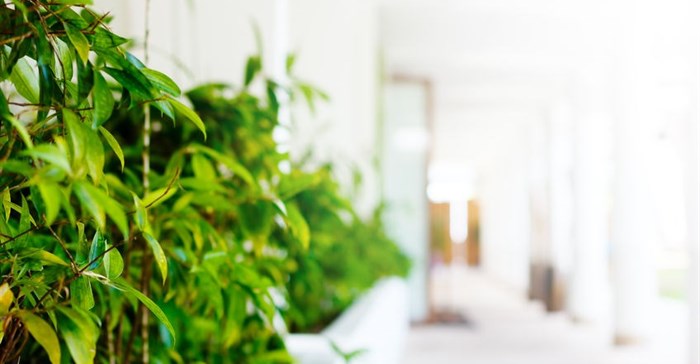
Related
Top stories






More news


Marketing & Media
Ads are coming to AI. Does that really have to be such a bad thing?














Often, ‘greening’ benefits not just the environment, but also a company’s bottom line. This is most relevant in times like the present when water and electricity tariffs are on the rise. A good first step is to measure, for example, how much power the geysers are using, how much water is being consumed in the laundry, or just how much waste is being generated in the kitchen of your establishment. The more you can measure the usage, the better you can manage it and make savings.
A great idea is to compile a list of all the areas within your operations - restaurant, reception area, bedrooms, laundry, workshop, staff quarters, security office, etc. - and then to measure usage of power, water and waste in them, before drawing up a list of actions that can be taken to reduce this consumption.
Start with low-cost improvements and monitor the savings from these; then allocate any monetary gain towards more expensive investments, such as solar panels, energy-efficient appliances and motion-sensor devices.
Staff training is an important consideration: something as small as reminding the housekeeper to switch off lights/air-con when cleaning, or the chefs to keep kitchen fridges closed, can make all the difference. Additionally, lessons learned at work tend to spill over into the home environment – families will benefit from lower household utility costs and the feel-good factor of making an eco-difference.
Under the three main concerns of water, electricity and waste, three cost-saving measures can be applied: recycle, reduce and reuse.
A staff member could be allocated the task of separating waste on site – e.g. glass, paper, and plastic – for later collection by a recycling plant, while organic material (vegetable peels from the kitchen) can make compost for the gardens. Planting more trees is important for the oxygen they provide, as is establishing a garden on your premises. Another benefit of an on-site garden is that less produce (veggies, herbs etc.) needs to be transported to your premises, further lowering its carbon footprint.
Conference facilities can make use of recycled stationery for their delegates and, when renovations or expansions are required, natural materials like stone, wood and thatch can be chosen. In the bush, huts can be lit with gas or candlelight and gas/solar-heated showers can be positioned outside to enjoy amazing views – guests will love the novelty factor.
Perhaps, over time and with increased purchase and use, the more expensive eco-friendly options will become more affordable: high-wattage energy saver bulbs for lighting, weather-resilient solar panels on pool roofs, water-saving aerated taps in guest bathrooms and grey-water recycling for hotel irrigation.
Fair Trade Tourism is also catching on in the hotel industry, with traders encouraged to operate in an environmentally sustainable way. Fair Trade Tourism supports fair wages and working conditions as well as fair purchasing and operations.
An organisation such as the Green Building Council SA can be consulted or, in fact, joined, to make clear to the business community and your guests/clients of your intention to play your part in transforming South Africa’s built environment.